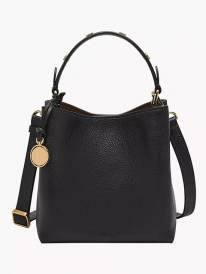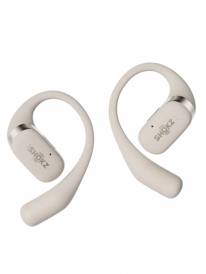Dr Edith Weisberg What is Normal? Interview

Dr Edith Weisberg What is Normal? Interview
Even in 2012, menstruation remains an off-limits topic for most women, making it difficult to find accurate information on periods and what is considered 'normal' when it comes to blood loss and pain according to new research by Bayer Healthcare.
The survey of 800 women aged 18 to 49 found that three-quarters still consider periods to be a taboo topic for public discussion, and while some information was being passed down from mothers and teachers, there were gaps in the information provided about what blood loss and pain a woman should expect.
When asked about their first period, 77% were not fully aware of the amount of blood loss to expect from their first menstrual cycles, while 84% of women surveyed said they were not fully aware of the level of pain to expect.
Awareness of what was normal when it comes to periods was also low, with almost half of respondents having never heard of heavy menstrual bleeding (menorrhagia) defined as blood loss of 80ml or more per period compared to 30-40ml of blood loss per normal period. A further 22% had some understanding of menorrhagia but did not know it was a treatable medical condition.
The majority of women surveyed used between 8 to 20 sanitary pads or tampons during a 'normal' period; however one in five would use up to 30 sanitary pads or tampons on average.
The range of activities most affected by heavy periods were sex (71%), physical exercise, such as swimming (53%) and choice of outfit (50%).
Dr Edith Weisberg, Director of Research at Family Planning NSW, said: "Heavy menstrual bleeding (menorrhagia) affects 25-40% of women in Australia, causing them unnecessary disruption if they are unaware of treatment options for both medical causes and medical management on the condition. Women who experience heavy menstrual bleeding may consider it 'normal' because they are not aware of what is normal menstrual blood loss."
Heavy menstrual bleeding (menorrhagia) can sometimes be a serious condition and if left undiagnosed or untreated can lead to anaemia or even the need for a hysterectomy.
17% of women surveyed educated themselves via the media, including TV adverts and articles in women's magazines, before they experienced their first period.
Dr Edith Weisberg continued: "Education about periods and making women feel comfortable discussing menstruation will help women of all ages understand their bodies and address any concerns. Women with questions about their periods should speak to their GP or a healthcare professional."
Interview with Dr Edith Weisberg
Dr Edith Weisberg, Director of Research at Family Planning NSW.
Question: Can you talk about what is considered 'normal' in regards to normal menstrual blood loss?
Dr Edith Weisberg: It is very difficult for women to assess if their blood loss during menstruation is normal or not. We regard anything that is 80mls or less per menstrual cycle as normal, that is about ¾ of a cup and the average is ½ a cup although most women think they lose a lot more. The problem is that if they lose more than 80mls in an every menstrual cycle they're not able to replace the blood they have lost with the normal iron content, in their diet, so eventually they become anemic if they have heavy bleeding consistently.
Question: How does heavy menstrual bleeding affect women?
Dr Edith Weisberg: Anemia can be chronic and women may not even realise they're anemic because it happens so gradually that they don't realise they are feeling tired, not as energetic and not able to do as much as they were previously. Anemia can be corrected by giving iron supplements.
The major issue for women is to realise if their bleeding is a problem it needs to be treated.
Question: What are some of the treatment options for heavy menstrual bleeding or menorrhagia?
Dr Edith Weisberg: There are very good treatments for heavy menstrual bleeding now. There is a new pill called Qlaira which reduces blood loss or you can use Mirena which is an IUD that releases progestogen, even the ordinary pill will reduce bleeding for some women and there are tablets such as Ponstan and Nurofen which will, in fact, also reduce bleeding in some women. There is another drug tranexamic acid (trade name Cyclokapron) which is also very effective in reducing the amount of blood loss.
Question: What is considered 'normal' in regards to pain?
Dr Edith Weisberg: Normal or what we call functional dysmenorrheal is when you get cramping pain that comes and goes, often lasting half a day to a day then goes away. It radiates in the pelvis and often down their legs and the inside of the thighs; often back pain can be associated with the cramps. Usually this pain doesn't last longer than a day or so. The pain that usually means there is something not quite right is where women have a dragging pain; women who have pain for a considerable period of their period may in fact be suffering from endometriosis.
Question: Did it surprise you that menstruation remains an off-limits topic for most women?
Dr Edith Weisberg: We have conducted many studies in regards to heavy menstrual bleeding because it is an area that I am interested in. One of the things that interests me is that women do not talk about how much blood they lose or often how much pain they might have because they have been told that's normal and they choose not to talk about it.
Really heavy menstrual bleeding will affect the lives of women for about three days in each cycle and they will need to carry huge amounts of equipment to keep changing and be near a toilet and sometimes even have to miss work because they flood and stain clothes. A heavy menstrual bleeding cycle will affect what clothes a women wears as she will need to choose darker coloured clothes in case she leaks. Often heavy menstrual bleeding will also affect a woman's physical activities - it is big problem and often women will believe because their mother had heavy periods that what they're experiencing is normal when in fact heavy menstrual bleeding can be treated.
Question: Can you talk about the advantages and disadvantages of skipping menstruation using forms of contraception including the pill?
Dr Edith Weisberg: Skipping menstruation may not help women with heavy bleeding as they may have break through bleeding but skipping menstruation by using the pill would be worth trying. Skipping menstruation by using the pill is good for women who have a lot of period pain and particularly for women who have endometriosis. You can control the pain by not having a period and by taking the contraceptive pill or ring continuously.
The other thing that skipping menstruation can help with is women who have menstrual migraines, when some women stop for a week off the hormone pills they will have a drop in their estrogen level and that causes a headache.
There are a number of different menstrual symptoms that can be improved by women taking their contraceptive pill or ring continuously. The disadvantage of this is that women will probably have some erratic bleeding.
I have just finished a study of 140 women who have either been using the pill or the ring continuously and a lot of them have very little bleeding although it does tend to be erratic.
Many modern women prefer not to bleed regularly and can suppress bleeding by taking the pill or using a vaginal ring without a break. There is no real benefit for women in bleeding regularly in fact a modern woman is unnatural in having 300 periods in a lifetime. In women in earlier years where no contraception was available had only about 50 periods in a lifetime because they were either pregnant or breast feeding. The modern woman with more periods is more exposed to getting diseases such as endometriosis, breast, uterine or ovarian cancer than women living in earlier more natural times.
The survey of 800 women aged 18 - 49 was commissioned by Bayer Australia Limited, 875 Pacific Highway, Pymble NSW 2073, and conducted by Nielsen Research in December 2011 and focused on menstruation, periods and heavy menstrual bleeding.
Interview by Brooke Hunter
MORE
- Chiropractic Myths & Truths
- Expert Tips to Put You in front In a Triathron
- 3 Reasons to Use Alcohol-Free Parfum Crème
- BrainyApp
- Robert .Dipper' and Cheryl DiPierdomenico...
- Band-Aid Limited Edition Mickey Mouse Collectable
- The Complete Illustrated Guide to - Reflexology
- Be Physically Active, Enjoy Healthy Eating
- Diagnostic Breast Interventions
- One Breast Bigger Than The Other?





